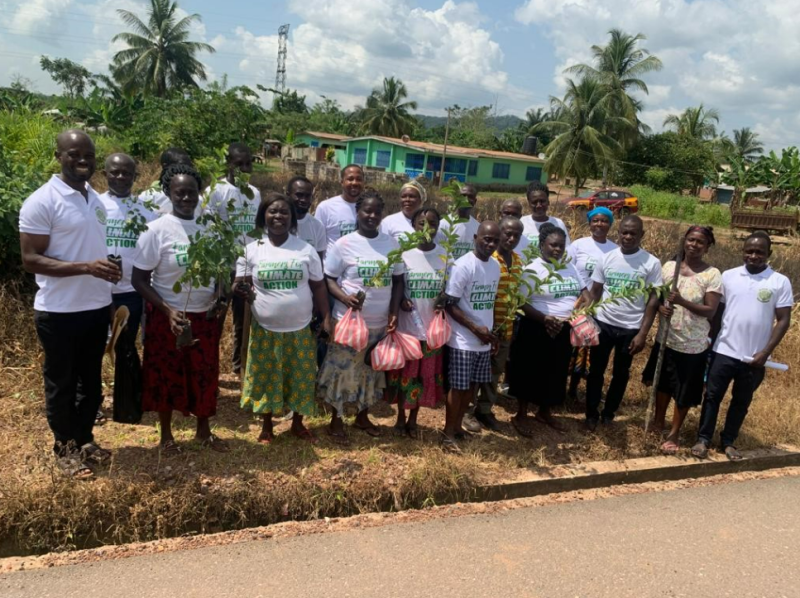Using Photovoice to Understand Community Resilience Under Anticipated Climate Change Impacts
Dr. Hanson Nyantakyi-Frimpong, Department of Geography & the Environment

Public Good Fund Supports Climate Change Adaptation and Mitigation in Ghana
Ghana is among the West African countries prone to recurring droughts, floods, and other extreme weather events linked to climate change. More than 70 percent of Ghana’s population of 32 million depends on smallholder agriculture. Changes in the amount and distribution of rainfall, among the consequences of climate change, make food and water supplies increasingly precarious in the country. For many rural regions, climate change is a food, water, and economic crisis without precedent. Hanson Nyantakyi-Frimpong, a geography professor at DU, has more than a decade of research working with smallholder farmers to address climate change’s immediate and long-term impacts in Ghana. With funding from DU’s Center for Community Engagement to Advance Scholarship and Learning (CCESL), he initiated community-based research in 2018 to build resilience to looming climate threats and improve food and water security. The project ended in December 2022 and was run in collaboration with two community partners, Northern Ghana Agroecology Group and Global Tree Partnership. As part of a series of activities, the project involved participatory scenario planning workshops with over 400 people from 10 communities in discussing future climate scenarios and potential land use activities for adaptation and mitigation. From the scenario planning workshops, farming communities indicated a strong interest in seeing a future with increased tree planting and forest regeneration. In response to this interest, project activities further involved working with over 1,000 farmers to test agroforestry and forest regeneration for food and water security in climate-sensitive contexts.
In addition to supporting agroforestry and forest regeneration activities, the CCESL-funded project also included policy workshops on the need for government agencies to listen to the voices of farmers, understand their priorities, and respond with urgency. A survey conducted in December 2022 showed that over the four-year project period, participating farmers saw significant improvements in food security, agricultural water management, and climate change resilience. Farmers who benefited from the project also expressed a desire that the discoveries made be expanded to address similar challenges throughout Ghana and the world.